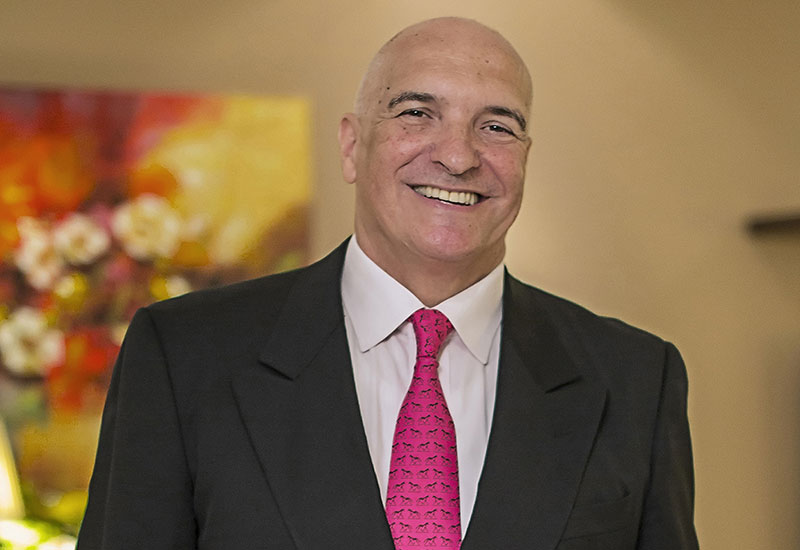In today’s highly competitive environment, owners have to contend with many factors, such as increasing labour and benefits expenses, growing guest acquisition costs, coupled with low average daily rate, all of which hinder the ability to generate meaningful profit growth.
In this scenario, small individual hotel owners are at risk when they decide to manage their properties on their own.
Both from a quality standpoint in terms of consistency of product, standards and service, as well as distribution and lender comfort, these hotels do not have the resources to outperform international brands.
Moreover, most global 5-star brands have now stepped into the playing field, with their own mid-market brands that have an international reach with highly advanced reservation platforms and powerful marketing and loyalty programmes.
According to STR’s most recent global list, there are more than 1,000 hotel brands in operation and they continue to multiply. The creation of mid-market brands by international operators has allowed them to operate in every segment of the market.

| Advertisement |
These brands deliver on the promise consistently, in addition to being recognised by global travellers who feel more comfortable to be with an established name.
Today’s customers are far more tech-savvy and aware. When they book hotels, they are not ready to pay non-branded hotels the same price as they would pay a well-recognised brand. That’s where the problem arises for local hotel groups as they end up compromising on price to fill rooms. On top of this, as their direct booking channels are not optimised to drive demand, they have to depend almost entirely on OTAs for their online business which means hefty fees in commissions that can reach as high as 30%.
Fierce competition for independents also comes from alternative lodging companies, such as Airbnb, who are disrupting the market and are mainly eating into the share of standalone hotels.
However, the bulk tendency of the hospitality business is primarily related to the mid-market priced hotels and the philosophy is based on the thinking: “We want the luxury, but we do not want the formality and we feel good in a hotel offering a casual elegance”.
Chain hotels have been consistently posting a higher revenue per available room, both in luxury and mid-market segments, when compared to independents or unaffiliated properties.
To be more visible within the market place, unaffiliated or individual properties perhaps should sooner or later be thinking in terms of commercial strategic alliances between owners, along with sales and marketing representation, whereby they can benefit from a support network and economies of scope and scale.
Here a question arises: ‘What if the project does not qualify to meet the standards to fly a brand flag? What choice do independents have other than running their own hotel?’
From franchise to soft branding and getting sales and marketing representation are some options.
Independent hotels that have been in business for at least a few years, must consider re-engineering their standards by eventually flying a brand flag to match international customer expectations in terms of standards, quality, service and image, as well as higher ROI.
In addition, international operators will boost the value of the asset by managing and maintaining the building to much higher standards — thus ensuring the stamp of approval from globally recognised financial and asset valuation bodies. This will increase the market value of the product at the time of selling.
In fact, the master word is innovation or stagnation! Pursuing the winning strategy and especially the ‘winning-edge’ technology — partnerships and continuous product innovation are the name of the game, through professional communication and digital transformation rather than sticking by the conservative industry approach or clichés.
In conclusion, to be successful, unique and well perceived by the market, hotels need to be distinctive as companies well known for having an innovative corporate culture and working environment that inspires employees, customers and board members. It will play an instrumental role to drive sustainable change for the sake of the ‘My Dubai’ destination.
About the Author: Michel Noblet is chairman of EVOPS Hotel Consultancy, a specialised hotel development consultancy that offers a range of strategic technical, operational and financial advisory services to both hotel owners and operators. Ranked among the most influential hoteliers in the Middle East, Michel Noblet’s experience spans across five continents in over 65 countries from Europe and Africa, to the Caribbean, Middle East, West Asia and Asia Pacific. Having been in the industry for the past 55 years, hospitality comes naturally to him. A greater part of it was spent with Le Meridien Hotels & Resorts where he enjoyed three glorious decades as founding member. Email: michel.noblet@evopshotelconsultancy.com









 Search our database of more than 2,700 industry companies
Search our database of more than 2,700 industry companies









